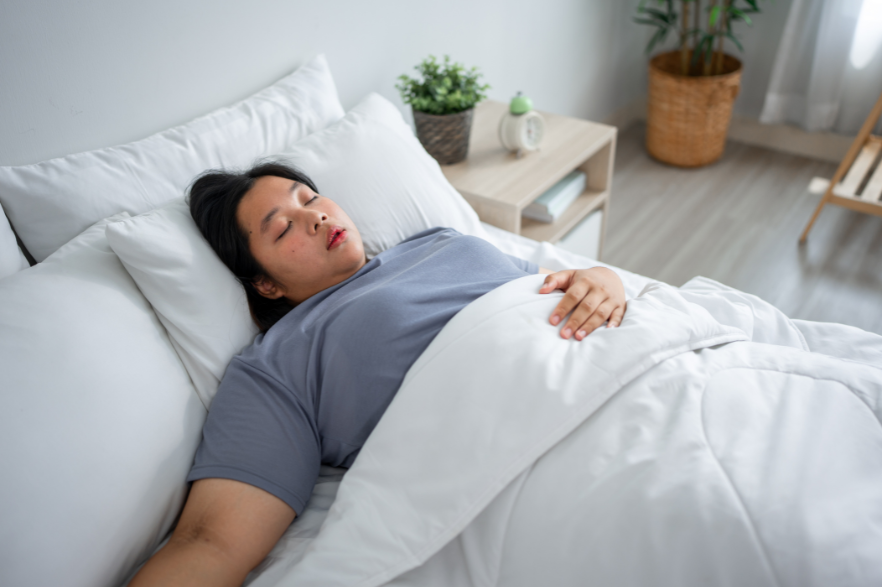
Sleep is having a moment!
The field of sleep medicine has had some exciting developments in the past year that are helping many patients better manage their obstructive sleep apnea symptoms (OSA) while improving overall quality of life.
In addition, the approval of Zepbound®, a GLP-1 medication for OSA, offers patients a way to address underlying weight issues that can worsen OSA and its symptoms.
What is Zepbound®, and How Does It Compare to CPAP for Sleep Apnea?
Zepbound® is a GIP and GLP-1 receptor agonist that works with your body to help regulate appetite, blood sugar levels, insulin sensitivity, and metabolism. Besides helping you to feel fuller longer, one study showed that Zepbound® was five times more effective in improving breathing disruptions (measured by apnea-hypopnea index) when compared to the placebo group.
CPAP therapy is still known to be the gold standard treatment for sleep apnea. While 53% of doctors are still favoring CPAP therapy in their patients’ treatment plans, patients are starting to prefer the ability to incorporate Zepbound® into their treatment plans. In another study, the most success in treating OSA and weight gain was seen when Zepbound® and CPAP were combined; adults using both Zepbound® and CPAP therapy lost an average of 20% of their body weight.
Who Qualifies for Zepbound® for Sleep Apnea?
First, obstructive sleep apnea is a disorder that affects millions of people worldwide, with many remaining undiagnosed. Common symptoms someone might experience when they have undiagnosed sleep apnea include:
- Snoring
- Daytime fatigue
- Morning headaches
- Difficulty concentrating or focusing
- Depression
- Decreased libido
OSA and weight gain share a bidirectional relationship, meaning that sleep apnea can cause more weight gain and the increase in weight can make sleep apnea symptoms worse. This occurs because excess weight can lead to tissue buildup around the airway, causing a disruption in breathing during sleep, while sleep apnea itself disrupts hormones that regulate hunger and metabolism. In fact, 63% of men living with obesity also suffer from OSA and 22% of women living with obesity suffer from OSA.
To qualify for Zepbound® for sleep apnea, patients should:
- Have moderate-to-severe obstructive sleep apnea, generally defined as an apnea-hypopnea index (AHI) of 15 or greater
- Have a diagnosis of obesity (BMI ≥30) or in some cases, a BMI of 27 or greater
- Not be taking another GLP-1 medication, or have any of the typical exclusion criteria for Zepbound®.
The FDA has approved Zepbound® specifically for adults meeting these criteria, making it the first prescription medication approved for treating OSA.
Where to Get Zepbound® for Sleep Apnea + Insurance Coverage Options
Zepbound® is a prescription medication that has to be provided by a licensed clinician. The benefit of scheduling an appointment with a sleep clinician who prescribes Zepbound® is that they can provide expert and personalized guidance on both individual and combination therapy of CPAP and Zepbound® based on your health needs, goals, and preferences. .
Besides the prescription, there are also insurance coverage considerations:
- Coverage of Zepbound® varies by insurance plans
- Prior authorization may be required not just for the initial prescription, but for ongoing use of Zepbound® as well.
At Ognomy Sleep, our comprehensive approach includes virtual consultations with a sleep clinician, FDA-cleared home sleep testing, and access to multiple treatment options including CPAP therapy, oral appliances, and prescription medication.
Ready to explore your options? If you're struggling with sleep apnea symptoms and have concerns about your weight, consult with a sleep specialist to determine whether Zepbound® might be an appropriate treatment option for your specific situation.
